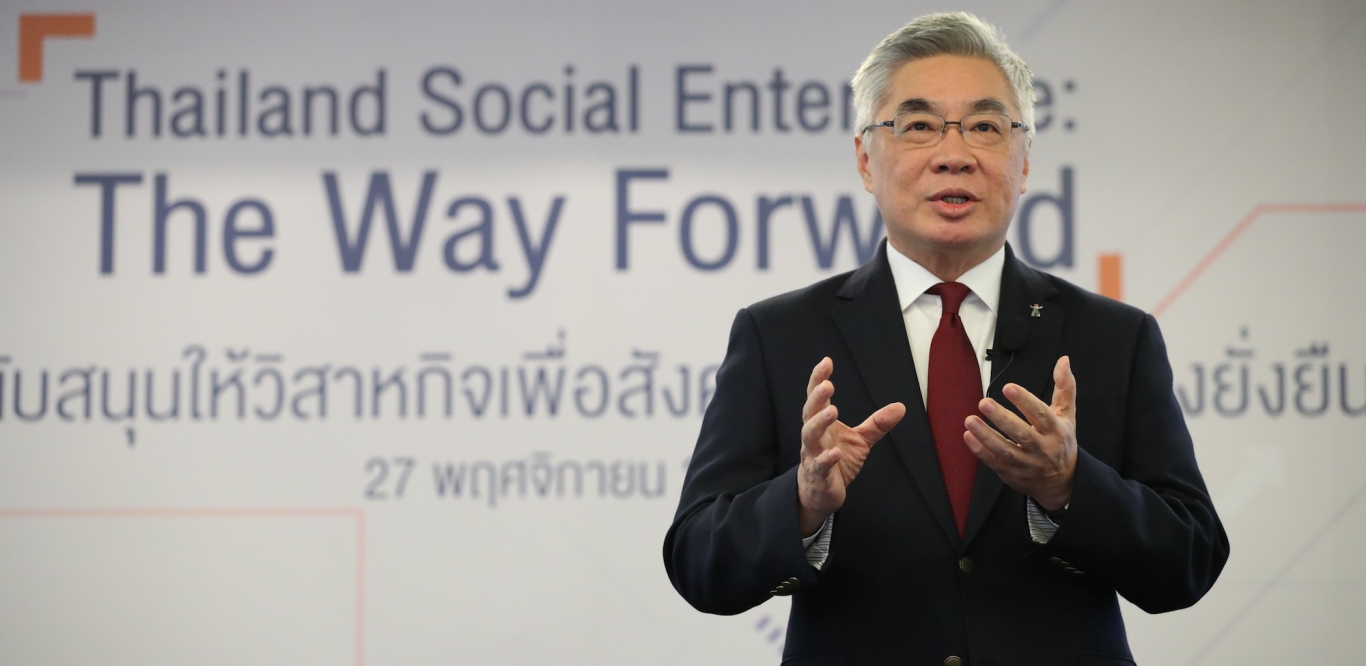TIJ urges stakeholders to take part in shaping the Future of “Social Enterprise” in Thailand
In response to the widespread social, economic and environmental problems caused by capitalism, Social Enterprise (SE) has emerged as a solution for a more sustainable economic growth.
The idea of Social Enterprise, also known as SE, has been fully endorsed in Thailand. Beside civil society and private sector generous support, legal framework such as policies and relevant laws have been developed by the public sector since 2010. More recently, a public hearing has been held to discuss the Social Enterprise Act which has now reached the final stage before consideration for endorsement.
Thailand Institute of Justice (TIJ) fully supports and promotes Social Enterprise as a model to achieve sustainable development. In partnership with RoLD Fellows, TIJ successfully held the Roundtable on “Thai Social Enterprise: The Way Forward”. The event was attended by SE stakeholders and welcomed experts’ contributions from all sectors to work together on SE realistic proposals for future policies.
The roundtable was divided into 3 sessions namely, the opening speech by Prof. Dr. Kittipong Kittayarak, Executive Director of TIJ, on Social Enterprise for Sustainable Development. In his words “A good law should be accessible to all equally and create an ecosystem where passionate people are empowered to bring innovation and decrease inequality. The key to success starts from providing enough knowledge for entrepreneurs to build their own business model and granting them access to funding and tax advantages”. The law alone cannot govern all parts of the ecosystem however, cooperation among sectors namely incubators, education sector, financial institutions, entrepreneurs’ associations and public sectors is key for SE successful implementation and development.
The first roundtable session discussed “Ecosystem: Policy aspect and social contribution of social enterprise”. Panelists were invited to present the role of Social Enterprise in Thailand’s sustainable development agenda. Examples of SE failures in Thailand and the importance of a SE ecosystem were among the topics debated. All Panelists representing an array of industry sectors, have played a big role in pushing SE forward i.e., Sarinee Achavanuntakul, Co-founders of Sal Forest Co. Ltd., Pitchwadee Kittipanyangam, Lecturer, Faculty of Commerce and Accountancy, Thammasat University, Nattapong Jaruwannapong, Director of The Thai Social Enterprise Office (TSEO), M.L. Dispanadda Diskul, Board of Directors, TSEO.
The second session focused on “SE legal framework and its direction for Thai future”. Panelists included practitioners who have greatly contributed to making SE law i.e., Noppakao Sucharitakul, Executive Vice President Head of Social Development Group and Corporate Communication, SET, Sunit Shrestha, Director of ChangeFusion and Jaranporn Lertsahakul, Managing Director, Green Style Co. Ltd., and representative of Revenue Department; Woramit Krutto, Senior Executive Vice President, SME Development Bank and Dadanee Wuttioadadorn, Director of Tax Policy and Planning Division, Department of Revenue.
After each round of discussion, participants were given an opportunity to vote for or against certain subjects and reply to the questions in regards to Social Enterprise. All opinions and information collected will be processed and considered for academic research and future policy development.
An exhibition was held to showcase various Social Enterprise supporters such as, Taejai.com, UNDP, Green Style Thailand,121, Young Happy, Social Giver and Toolmorrow.



